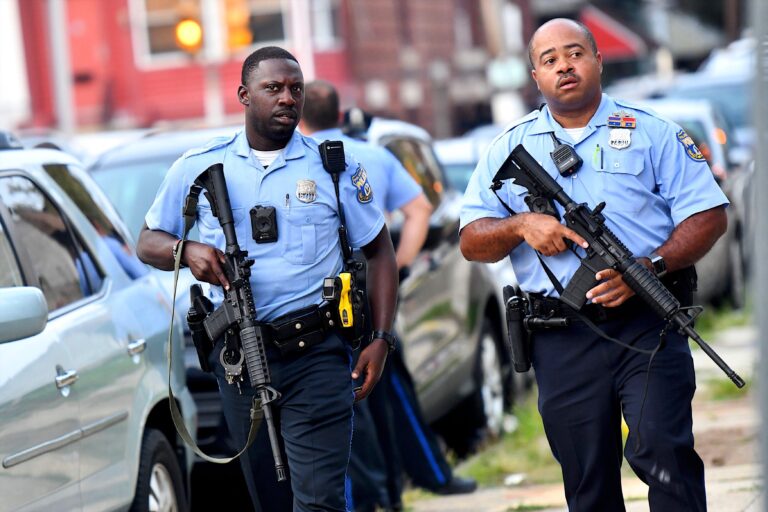Philadelphia Mobilizes to Combat Rising Violence with Community and Policy Initiatives
Following a weekend marked by a sharp increase in violent episodes that left numerous Philadelphians injured, city officials convened to strategize both immediate and enduring responses. The recent spike in shootings and assaults has intensified concerns about public safety, prompting leaders to propose a multifaceted approach aimed at reducing crime rates and rebuilding community confidence. This article explores the comprehensive measures being implemented, highlighting the critical role of community involvement, law enforcement enhancements, youth engagement, and legislative reforms.
Fostering Community Collaboration to Address Violence
Philadelphia’s government representatives, local activists, and police officials recently gathered to discuss the escalating violence, underscoring the necessity of strengthening ties between residents and law enforcement. They stressed that mutual trust and open communication are foundational to effective crime deterrence and swift case resolution. Emphasizing grassroots participation, the city is promoting initiatives that empower neighborhoods to actively contribute to safety efforts.
Proposed Community-Centered Strategies
- Neighborhood Watch Expansion: Mobilizing residents to vigilantly observe and report suspicious behavior.
- Youth Engagement Programs: Increasing mentorship and recreational opportunities to divert young people from gang affiliations.
- Enhanced Dialogue Platforms: Establishing regular forums and digital channels for ongoing conversations between citizens and officials.
| Initiative | Objective | Anticipated Outcome |
|---|---|---|
| Community Policing | Increase officer presence in vulnerable areas | Strengthen trust and reduce crime rates |
| Youth Mentorship | Engage at-risk youth with positive role models | Lower gang recruitment and juvenile offenses |
| Public Safety Forums | Promote transparency and community feedback | Empower residents to participate in safety planning |
Enhancing Law Enforcement Tactics and Technology
In light of the recent violence surge, Philadelphia’s police department has introduced a strategic plan to bolster patrol operations and improve emergency responsiveness. This includes deploying officers more effectively during peak crime hours and integrating cutting-edge technology such as predictive analytics and real-time data sharing to anticipate and mitigate threats proactively.
Core Elements of the Police Strategy
- Augmented foot and vehicle patrols in crime hotspots
- Formation of specialized rapid response units
- Upgraded communication infrastructure for quicker dispatch
- Community partnership programs to build rapport and cooperation
- Use of surveillance technology with strict privacy safeguards
| Enhancement | Projected Benefit | Implementation Timeline |
|---|---|---|
| Rapid Response Teams | Reduce emergency response times by 25% | Within 3 months |
| Data-Driven Patrols | Decrease violent crimes by 15% | Ongoing |
| Community Engagement Initiatives | Improve public cooperation and trust | 6 months |
Investing in Youth Development to Prevent Future Crime
City leaders have highlighted the importance of channeling additional resources into youth-focused programs as a preventative measure against violence. At a recent press conference, officials announced plans to increase funding for after-school activities, mentorship schemes, and mental health services aimed at supporting vulnerable young people. These efforts are designed to provide constructive alternatives and reduce the allure of criminal involvement.
Priority Areas for Youth Program Funding
- Expansion of sports leagues and creative arts initiatives in underserved neighborhoods
- Boosting availability of counseling and psychological support for youth
- Collaborations with nonprofits to deliver vocational training and educational workshops
- Development of safe community centers offering social and recreational activities beyond school hours
| Program Type | Current Budget | Proposed Increase |
|---|---|---|
| After-School Programs | $3 million | $1.5 million |
| Youth Mentorship | $1.8 million | $900,000 |
| Mental Health Services | $2.2 million | $1 million |
Legislative Push for Stronger Gun Control and Enforcement
In response to the recent uptick in gun-related violence, lawmakers at the local level are advocating for more rigorous firearm regulations and enforcement. Proposed reforms include expanding background checks to cover private and online sales, instituting red flag laws to temporarily disarm individuals deemed a threat, and enhancing interagency cooperation to tackle illegal gun trafficking. These measures aim to reduce the availability of firearms to unauthorized users and curb gun violence trends.
Key Gun Control Proposals
- Universal background checks encompassing all firearm transactions
- Red flag legislation enabling temporary removal of guns from high-risk individuals
- Increased funding for firearm tracing and investigation programs
- Stricter penalties for illegal possession and trafficking of weapons
| Policy | Purpose | Expected Result |
|---|---|---|
| Universal Background Checks | Block firearm sales to prohibited buyers | Decrease illegal gun ownership |
| Safe Storage Laws | Promote responsible firearm handling | Reduce accidental shootings |
| Red Flag Laws | Temporarily disarm individuals posing risks | Prevent potential violent acts |
Conclusion: A Unified Approach to Restoring Safety in Philadelphia
As Philadelphia confronts a troubling rise in violent crime, city leaders emphasize that a coordinated response involving law enforcement, community members, and policymakers is essential. While immediate interventions are underway to address the recent weekend’s violence, sustainable progress depends on ongoing investment in community trust-building, youth development, and legislative reform. Continued monitoring and adaptive strategies will be critical as the city strives to create safer neighborhoods for all residents.








